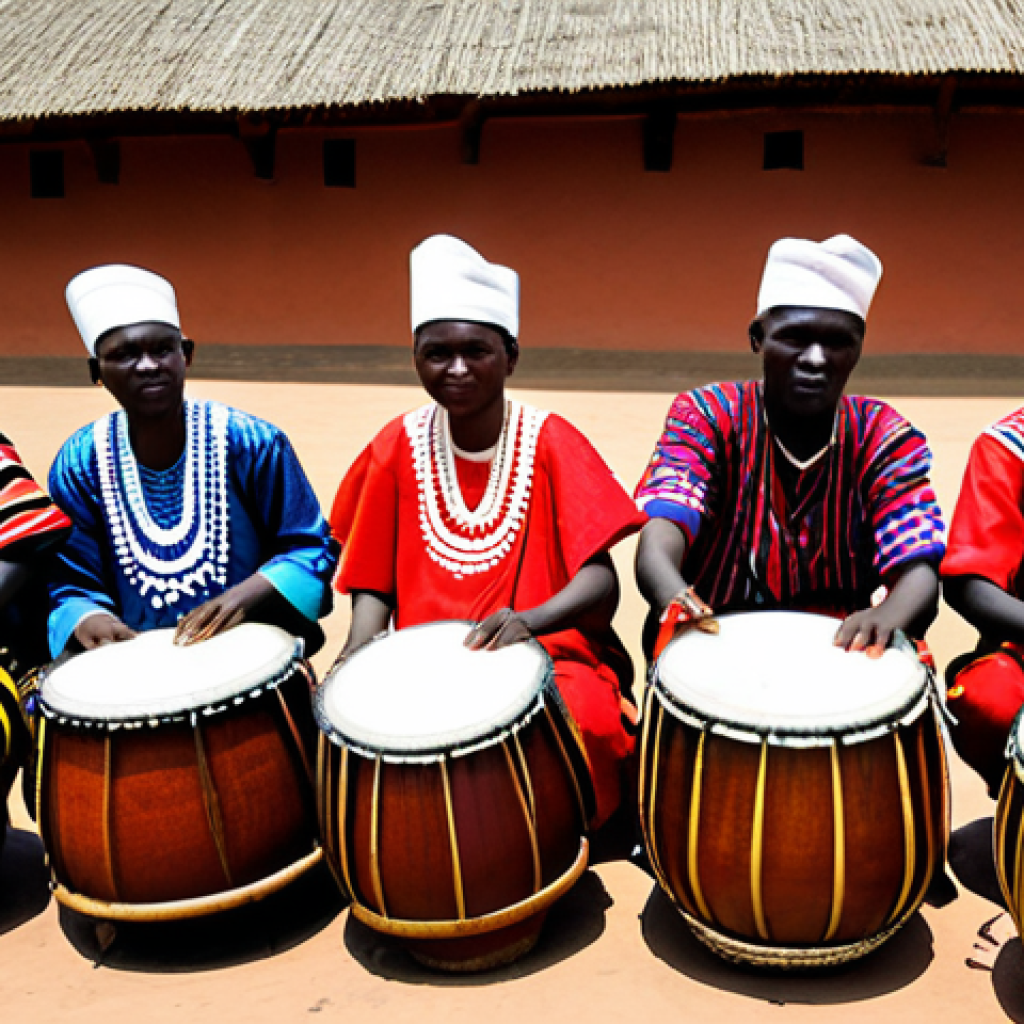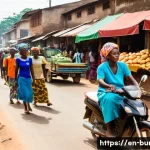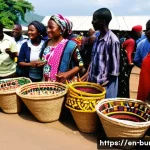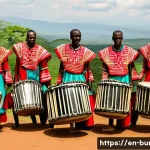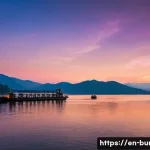Burundi, a small East African nation often overlooked, holds a surprising array of natural beauty and cultural richness. From the shimmering waters of Lake Tanganyika to the rolling hills dotted with tea and coffee plantations, this country offers a unique travel experience.
I’ve heard that the hospitality of the Burundian people is unparalleled. Though I haven’t been there yet myself, I’ve done a ton of research, and it sounds like visiting Burundi is like stepping into a vibrant tapestry of sights, sounds, and flavors.
It’s definitely climbed to the top of my “must visit” list. Let’s dive deeper into what makes Burundi such a fascinating destination!
Burundi, a small East African nation often overlooked, holds a surprising array of natural beauty and cultural richness. From the shimmering waters of Lake Tanganyika to the rolling hills dotted with tea and coffee plantations, this country offers a unique travel experience.
I’ve heard that the hospitality of the Burundian people is unparalleled. Though I haven’t been there yet myself, I’ve done a ton of research, and it sounds like visiting Burundi is like stepping into a vibrant tapestry of sights, sounds, and flavors.
It’s definitely climbed to the top of my “must visit” list. Let’s dive deeper into what makes Burundi such a fascinating destination!
Discovering the Serenity of Saga Beach
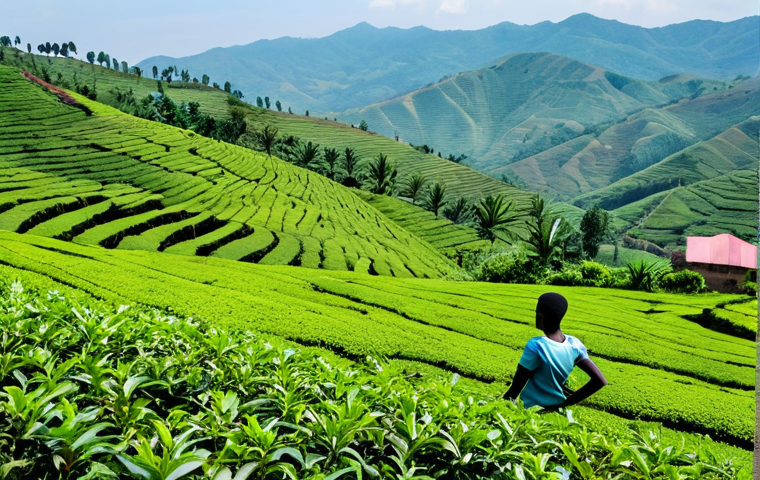
Saga Beach, oh man, it’s not your typical overcrowded beach scene. From what I hear, it’s more like a hidden gem where you can actually unwind. Imagine yourself chilling on the sand, with the gentle lapping of Lake Tanganyika providing the perfect soundtrack to your relaxation.
It’s apparently a local favorite for picnics and casual get-togethers, so you get a real sense of Burundian life just by being there.
A Quiet Escape
If you’re the type who needs a break from the hustle and bustle, Saga Beach sounds like the perfect antidote. I’ve read that it’s rarely crowded, which means you can spread out, soak up the sun, and maybe even get lost in a good book without being disturbed.
Swimming and Sunbathing Bliss
The waters of Lake Tanganyika are famously clear and inviting, making Saga Beach a great spot for a refreshing dip. Plus, the soft sandy shore is perfect for sunbathing.
Just remember your sunscreen! I’ve heard the sun in Burundi can be quite strong.
Experiencing Local Life
One of the coolest things about Saga Beach is that it’s a place where locals hang out. You’re not just seeing a tourist attraction; you’re getting a glimpse into the everyday lives of Burundians.
Pack a picnic, strike up a conversation, and maybe even learn a few phrases in Kirundi!
Immersing Yourself in the Culture at Gishora Drum Sanctuary
Okay, if there’s one cultural experience in Burundi that everyone raves about, it’s the Gishora Drum Sanctuary. Drums are a huge part of Burundian heritage, and Gishora is where you can witness the incredible drumming rituals that have been passed down through generations.
I’ve seen videos online, and it’s seriously mesmerizing.
The Rhythmic Heartbeat of Burundi
Drums aren’t just instruments in Burundi; they’re symbols of power, royalty, and tradition. The drummers at Gishora are highly respected, and their performances are a showcase of skill, precision, and cultural pride.
The sound is supposed to be incredibly powerful and moving.
A Glimpse into Ancient Traditions
Gishora isn’t just about watching a performance; it’s about stepping back in time and connecting with Burundi’s rich history. The sanctuary itself is a sacred site, and the rituals performed there are steeped in ancient beliefs and customs.
You’ll come away with a deeper understanding of Burundian culture.
Interactive Cultural Experience
Apparently, visitors sometimes get the chance to try their hand at drumming (under the guidance of the experts, of course!). Even if you don’t have a natural talent for rhythm, it’s a fun and memorable way to engage with the local culture.
Imagine telling your friends you drummed in Burundi!
Exploring the Tea Plantations of Teza
Burundi is famous for its tea and coffee, and touring a plantation is a must-do for any visitor. The Teza tea plantations offer a picturesque landscape of rolling green hills, and you can learn about the entire tea-making process from leaf to cup.
Plus, the views are supposedly breathtaking.
A Scenic Journey
The drive to the Teza tea plantations is an adventure in itself. You’ll wind through lush countryside, passing through small villages and seeing the everyday life of rural Burundians.
Keep your camera ready because the scenery is stunning.
From Leaf to Cup
During a tour of the plantation, you’ll get to see how tea is grown, harvested, and processed. You’ll learn about the different varieties of tea, the techniques used to cultivate them, and the steps involved in turning fresh leaves into the finished product.
And of course, you’ll get to sample some of the delicious tea!
Supporting Local Communities
Visiting the Teza tea plantations is also a way to support the local economy. The tea industry provides livelihoods for many Burundians, and by visiting and purchasing tea, you’re helping to sustain these communities.
Plus, you’re getting a souvenir that you can actually enjoy!
Delving into Nature at Rusumo Falls
While not as towering as Victoria Falls, Rusumo Falls holds historical significance as a border point between Burundi and Rwanda. The falls are a series of cascading waterfalls rather than a single dramatic plunge, and they offer a peaceful spot to relax and take in the natural beauty of the region.
Historical Significance
Rusumo Falls marks the border between Burundi and Rwanda, making it a place of historical importance. It’s been a crossing point for centuries, and it’s played a role in the region’s trade and diplomacy.
Taking photos here is like capturing a piece of history.
A Relaxing Escape
The falls aren’t just historically significant; they’re also a great place to unwind. The sound of the water cascading over the rocks is incredibly soothing, and the surrounding landscape is lush and green.
It’s a perfect spot for a picnic or a quiet moment of reflection.
Wildlife Spotting
The area around Rusumo Falls is home to a variety of birds and other wildlife, making it a great place for nature lovers. Bring your binoculars and keep an eye out for monkeys, birds, and other creatures that call this area home.
Experiencing the Vibrancy of Bujumbura’s Markets
Bujumbura, the former capital of Burundi, is a bustling city with vibrant markets that offer a sensory overload in the best way possible. From colorful fabrics to fresh produce, you can find just about anything in these markets.
It’s a great way to experience the local culture and pick up some unique souvenirs.
A Sensory Overload
Walking through Bujumbura’s markets is like stepping into a kaleidoscope of sights, sounds, and smells. Vendors hawk their wares, music fills the air, and the aroma of spices and grilled food hangs heavy in the air.
It’s an experience that will awaken your senses.
Unique Souvenirs
If you’re looking for souvenirs that are truly one-of-a-kind, the markets are the place to be. You can find handmade crafts, colorful fabrics, traditional clothing, and a variety of other items that you won’t find anywhere else.
Just be prepared to haggle!
Delicious Street Food
Don’t forget to sample some of the local street food while you’re at the market. You can find everything from grilled meat skewers to fried plantains to sweet pastries.
It’s a delicious and affordable way to experience Burundian cuisine.
Understanding Burundi’s Climate and Best Time to Visit
Planning your trip to Burundi involves understanding its climate. Being near the equator, Burundi enjoys a tropical climate with relatively consistent temperatures throughout the year.
However, the country does have a wet and dry season, which can influence the best time to visit.
Dry Season Delights
The dry season, which runs from June to September, is often considered the best time to visit Burundi. During these months, the weather is generally sunny and dry, making it ideal for outdoor activities like hiking, wildlife spotting, and exploring the country’s natural attractions.
The reduced rainfall also makes travel easier, as roads are less likely to be muddy and impassable.
Navigating the Wet Season
The wet season in Burundi typically occurs from October to May. During this time, rainfall can be heavy and frequent, which can make travel more challenging.
However, the wet season also has its advantages. The landscape is lush and green, and the cooler temperatures can be a welcome respite from the heat. Plus, the waterfalls are at their most impressive during this time.
Monthly Temperature Averages
Here’s a quick look at the average monthly temperatures in Bujumbura, to give you a sense of what to expect:
| Month | Average High (°C) | Average Low (°C) |
|---|---|---|
| January | 28 | 20 |
| February | 28 | 20 |
| March | 28 | 20 |
| April | 27 | 20 |
| May | 27 | 19 |
| June | 27 | 18 |
| July | 27 | 17 |
| August | 28 | 17 |
| September | 29 | 18 |
| October | 28 | 19 |
| November | 28 | 20 |
| December | 28 | 20 |
Essential Tips for Travelers
Before you embark on your Burundian adventure, it’s essential to be prepared. I haven’t actually been, but I’ve been told that taking the time to learn a bit about the local culture, customs, and practical considerations can make all the difference in ensuring a smooth and enjoyable trip.
I’ve spent hours researching and listening to people who have traveled there, so I’m passing along their tips.
Visa and Entry Requirements
Make sure you check the most up-to-date visa requirements for your nationality before you travel. Many nationalities require a visa to enter Burundi, which can be obtained from a Burundian embassy or consulate.
It’s also a good idea to have a copy of your passport and other important documents with you, in case of emergencies.
Health and Safety Precautions
It’s important to consult with your doctor or a travel clinic before you travel to Burundi to discuss any necessary vaccinations or health precautions.
Malaria is a risk in Burundi, so you’ll need to take preventative measures such as taking antimalarial medication and using mosquito repellent. It’s also a good idea to drink bottled water and avoid eating food from street vendors.
Respecting Local Customs
Burundi is a culturally rich country with its own unique traditions and customs. It’s important to be respectful of these customs during your visit. Dress modestly, especially when visiting religious sites.
Ask for permission before taking photos of people, and avoid public displays of affection. Learning a few basic phrases in Kirundi, the local language, can also go a long way in showing respect and building rapport with locals.
By keeping these tips in mind, you can ensure a safe, enjoyable, and memorable trip to Burundi. Burundi, with its untouched landscapes and vibrant culture, offers an unforgettable adventure for those willing to step off the beaten path.
From the rhythmic beats of the Gishora drummers to the serene shores of Lake Tanganyika and the aromatic tea plantations, this East African gem promises experiences that will stay with you long after you’ve returned home.
I’m already dreaming of the day I can finally experience its beauty firsthand!
In Conclusion
Burundi is truly a land of hidden treasures, waiting to be discovered. While it might not be the most conventional travel destination, it’s precisely its unspoiled nature and rich cultural heritage that make it so appealing. If you’re looking for an authentic and immersive travel experience, Burundi should definitely be on your radar. I know it’s on mine!
Good to Know Information
1. Currency: The Burundian Franc (BIF) is the local currency. Credit cards are not widely accepted, so it’s best to carry cash, preferably US dollars or Euros, which can be exchanged at banks or authorized exchange bureaus.
2. Language: Kirundi and French are the official languages. While English is not widely spoken, learning a few basic phrases in Kirundi can greatly enhance your interactions with locals.
3. Transportation: Getting around Burundi can be challenging. Taxis and buses are available in Bujumbura, but they can be crowded and unreliable. Hiring a private car with a driver is a more comfortable and convenient option, especially for exploring the countryside.
4. Accommodation: Accommodation options in Burundi range from budget-friendly guesthouses to more upscale hotels. Bujumbura offers the widest selection of hotels, but you can also find accommodation in other major towns.
5. Safety: Burundi has faced political instability in the past, so it’s important to stay informed about the current situation and take necessary precautions. Avoid traveling alone at night, and be aware of your surroundings. It’s also advisable to register with your embassy or consulate before you travel.
Key Takeaways
Burundi offers unique cultural and natural experiences, from drumming rituals to tea plantations. Plan your visit during the dry season (June-September) for optimal weather. Be prepared for limited infrastructure and challenging transportation. Respect local customs and traditions for a rewarding and immersive travel experience. Consult with your doctor about necessary vaccinations and health precautions before traveling.
Frequently Asked Questions (FAQ) 📖
Q: Okay, so Burundi sounds cool, but is it actually safe for tourists? I’ve heard some stuff about political instability.
A: That’s a fair question! Honestly, Burundi has had its share of challenges, and it’s true that political tensions can flare up. I’d definitely recommend checking your government’s travel advisories before you even think about booking a ticket.
Things can change quickly, and it’s better to be prepared. From what I’ve read though, most tourist areas are relatively safe, especially if you’re with a reputable tour guide who knows the lay of the land.
They can help you navigate the local scene and avoid any potential trouble spots. Think of it like this: you wouldn’t wander down a dark alley in any major city, right?
Same principle applies here. Do your research, be aware of your surroundings, and stick to well-traveled paths.
Q: Lake Tanganyika sounds amazing! What are some must-do activities there? Can you actually swim in it?
A: Oh, Lake Tanganyika is a gem! You absolutely have to take a boat trip – the views are breathtaking, especially at sunrise or sunset. It’s super peaceful just being out on the water.
And yes, you can swim, but be mindful of the usual lake precautions, like currents and wildlife. I’ve heard the snorkeling and diving are fantastic because the water is so clear, and there are unique species of fish you won’t find anywhere else.
Some places also offer kayaking or paddleboarding, which are fun ways to explore the shoreline. Personally, I’d love to just chill on a beach with a good book and a cold drink, soaking up the sun!
Q: What about the food? I’m not a super adventurous eater, but I’m always willing to try new things. What are some typical Burundian dishes I should look out for?
A: Okay, so Burundian cuisine is mostly based on staples like beans, rice, sweet potatoes, and plantains. Don’t expect anything too spicy – the flavors are generally mild and comforting.
Ubugali, a thick porridge made from cassava or corn flour, is a really common dish, and you’ll often find it served with a bean stew or grilled meat. I’ve read a lot about their fresh fish from Lake Tanganyika, which is supposed to be delicious – especially the grilled capitaine.
If you’re feeling a little braver, try brochettes (grilled skewers of goat or beef) or ndagala (small dried fish, kind of like whitebait). And be sure to try some of their local fruit – mangoes, bananas, and avocados are all super fresh and flavorful!
Even if you’re not super adventurous, I think you’ll find something you like.
📚 References
Wikipedia Encyclopedia
구글 검색 결과
구글 검색 결과
구글 검색 결과
구글 검색 결과
구글 검색 결과
